Founders

Campbell Maclnnes, Anglican Archbishop of Jerusalem
Angus Campbell MacInnes CMG (1901–1977) was a respected Anglican bishop known for his influential service in both the Middle East and England. Born into a prominent religious family, he served in various roles across Palestine, Syria, and Trans-Jordan, eventually becoming Archbishop in Jerusalem. MacInnes played a key role in interfaith dialogue and strengthening Christian communities in the region. Later, he served as Bishop of Bedford and Assistant Bishop of Salisbury. His legacy is marked by deep commitment, leadership, and dedication to the Anglican Church in complex and diverse settings.

Joseph Thompson, Director Lutheran World Federation, Jerusalem
Dr. Joseph O. Thompson was a devoted humanitarian and development expert who led the Lutheran World Federation’s programs in East Jerusalem and Amman during the early 1970s. With a strong background in international economic and social development, he played a vital role in supporting communities across the Middle East. As Director of LWF’s World Service program in Jordan, he worked closely with UNRWA and local authorities to coordinate humanitarian efforts, including the major rebuilding project in Karameh. A specialist in farm cooperatives, Dr. Thompson was known for his practical, solutions-driven leadership. He and his wife spent over 20 years living and working in the region, embodying a lifelong commitment to resilience, cooperation, and community development.
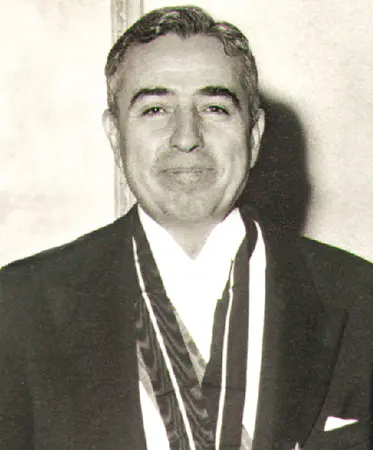
Anwar Z. Nuseibeh
Anwar Bey Nuseibeh (1913–1986) was a prominent Palestinian political leader, diplomat, and advocate for Arab unity and democratic governance. Born into the historic Nuseibeh family of Jerusalem, he played a key role in the region’s political developments before and after the 1948 and 1967 wars. Nuseibeh held several high-ranking positions in Jordan, including Minister of Defense and Ambassador to the UK, and was deeply involved in Palestinian nationalist efforts. Known for his commitment to peaceful dialogue, he later served as Legal Counsel to UNRWA and led the East Jerusalem Electric Company. His legacy reflects a lifelong dedication to justice, unity, and the peaceful pursuit of Palestinian rights.
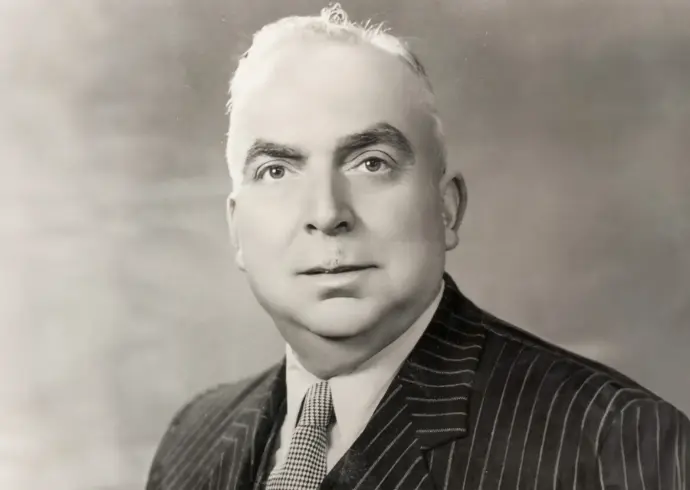
Aref El- Aref
Aref Al-Aref (1892–1973) was a renowned Palestinian journalist, politician, and historian, celebrated for his extensive work documenting Palestine’s history. Born in Jerusalem, he lived through the Ottoman, British, Jordanian, and Israeli eras, recording key events like the Nakba and Naksa. He served in various political roles, including governor of Beersheba and president of Jerusalem’s municipality. Aref authored numerous influential books on Palestinian cities and heritage, preserving the historical narrative of his homeland. His dedication to truth and national identity earned him lasting recognition, including the Jerusalem Medal for Culture, Arts, and Literature in 1990.
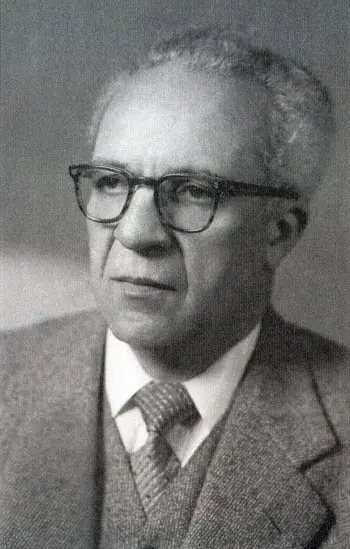
Qadri H. Touqan
Qadri Touqan (1905–1971) was a distinguished Palestinian mathematician, historian, and political thinker, known for his deep commitment to education, national identity, and Arab scientific heritage. Born in Nablus, he taught mathematics at Najah School and became a leading voice in promoting Arab contributions to science. His political activism began in the 1930s, leading to his exile by British authorities. Touqan later served as a Jordanian MP and Minister of Foreign Affairs, advocating for stronger Arab unity. He authored influential works on science, literature, and the Palestinian cause, leaving a legacy of intellectual resistance and cultural pride.
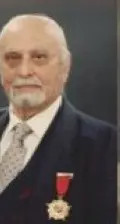
Noubar Arsenian
Noubar Hagop Arsenian (1912) was a respected Armenian pharmacist and radiographer born in Adapazarı. He studied Pharmacy at the American University of Beirut, graduating in 1935, and later specialized in radiography. Arsenian served as a Senior Radiographer in Palestine’s government hospitals before opening his own pharmacy in Jerusalem in 1944. He later moved to Aleppo, where he directed the Pharmaceutical Department at Ara & Co. His career reflected a strong dedication to public health and medical advancement in the region.
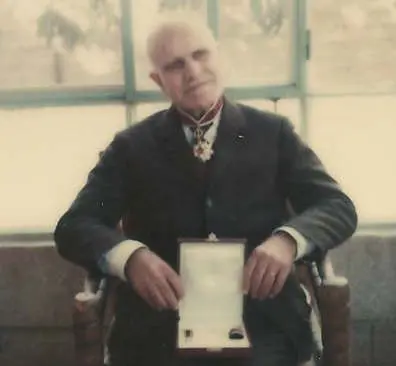
Jameel I. Hashweh
Jamil Issa Hashweh (1903–1982) was a pioneering advocate for the blind and visually impaired in the Arab world. Born in Gaza and blinded at age five, he overcame adversity to become a teacher, translator, and humanitarian. In 1932, he co-founded the Arab Organization for the Welfare of the Blind, providing vocational training and employment to the blind in Jerusalem, Hebron, and Amman. He launched the first Arabic Braille magazine, Call of Conscience, and played a key role in transcribing religious texts into Braille. A cultured man with a passion for music and literature, Jamil's life was dedicated to empowering the blind, earning him the Al Istiqlal Medal from King Hussein of Jordan.
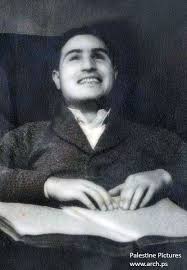
Subhi T. Dajani
Subhi Al-Dajani (1910–1975) was a trailblazer in the education of the blind in Palestine and the Arab world. Blinded by meningitis at age four, he mastered Braille in Arabic and English and became the first blind student admitted to the American University of Beirut. Dedicated to uplifting the blind community, he co-founded the Al-Alaia School for the Blind in Hebron in 1936—the first of its kind in the Arab world. He also established the National Library for the Blind in Jerusalem and published the Braille magazine Voice of Conscience. His pioneering efforts earned him international recognition and transformed the lives of countless blind students across the region.